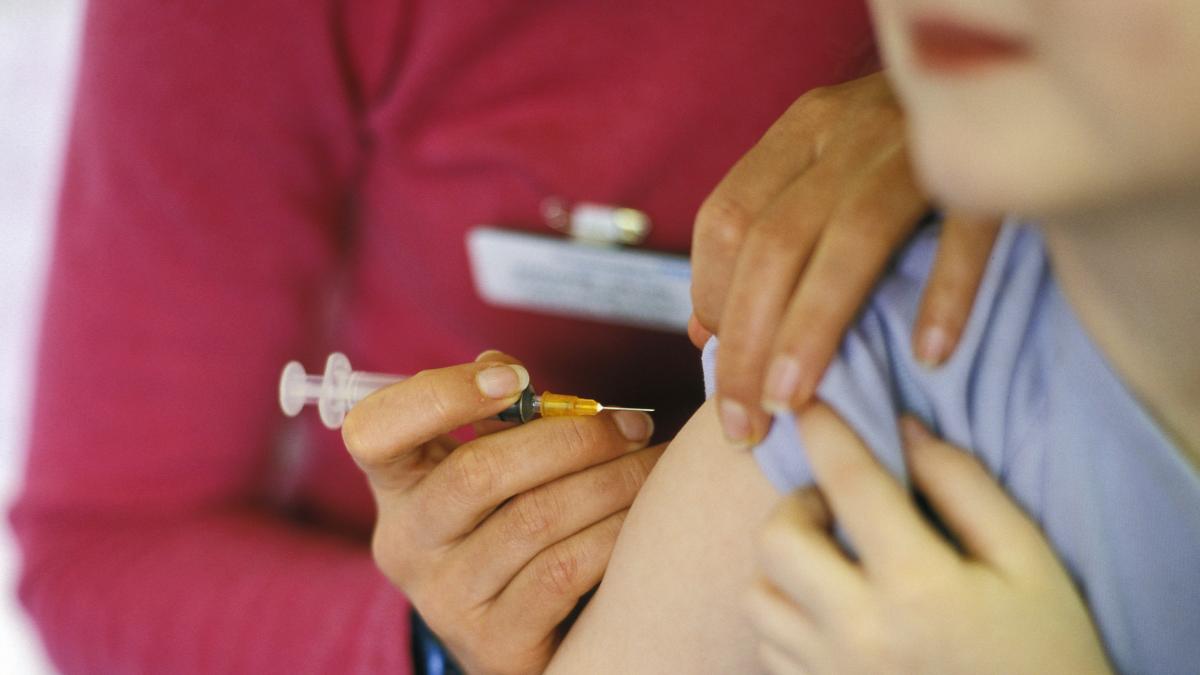Europe faces measles resurgence as vaccination declines

There is an increase in the incidence of measles in Europe. one of the most contagious viruses, due to low vaccination. Without going into detail, this Friday the United Kingdom’s Health Security Agency urged people who have not had a measles vaccine to get vaccinated due to a rise in cases of the virus, especially in the major cities of London and Birmingham.
In October, an outbreak occurred in Guillerand-Grange, France, where more than 60 cases and two hospitalizations were reported, most of them among children from the same high school. To this we must add that in December Romania declared a “national epidemic” due to this infection.
In November, the World Health Organization (WHO) already warned that The global threat from measles continues to grow. “After years of declining measles vaccination coverage, cases of the disease increased by 18% in 2022 and deaths rose by 43% worldwide (compared to 2021). Thus, according to a new report from the World Health Organization (WHO) and according to the US Centers for Disease Control and Prevention (CDC), the number of measles cases is estimated at 9 million, and the number of deaths is at 136,000 (most of them children).” , the organization warned.
According to the WHO, measles can be prevented with two doses of the vaccine. “Although global vaccination coverage increased slightly in 2022 compared to 2021, there are still 33 million children who have not received either of the two doses of measles vaccine this year: Almost 22 million children have not received their first dose and another 11 million were not enough for the second. Global first dose vaccine coverage was 83%, still significantly lower 95% coverage level needed to protect communities from outbreaks“, he emphasized.
Recent case of the United Kingdom
Given the outbreak in the United Kingdom, British health director Jenny Harris said “national action” was needed to ensure that children and some adults born between 1998 and 2004 receive the vaccine when they have also received the vaccine.Vaccination rates rise due to article now believed to be false which criticized the composition of MMR against measles, mumps and rubella, as reported by EFE.
Harris warned that measles, which has been eradicated from the UK, is spreading among unimmunized communities amid a general decline in vaccinations across the country.
The expert noted that there may be reluctance among the Muslim population to accept a vaccine containing pork derivatives, but stressed that they should be aware that There is another pork-free option that is also effective.
There were 198 laboratory-confirmed cases and 104 probable cases of measles in the central West Midlands between October 23, 2023 and January 15, according to statistics released by the health agency on Monday. 80% of them were located in the city of Birmingham, 8% in Coventry, and the rest in the rest of the territory.
Harris told public broadcaster BBC that he is currently only on average 85% of children come to school vaccinated with both doses MMR requirements while striving for a level of 95%.
An expert has said people have “forgot what measles is” – a highly infectious virus that can cause serious complications and in some cases be fatal.
Vaccination coverage in Spain
Spain appears to be holding out for now thanks to high vaccination rates. How to collect A countryIn 2023, there were about a dozen cases, “all imported or associated, without any chain of infection or development of a corresponding outbreak.”
They remember that according to the Ministry of Health, Vaccination coverage in Spain is 97.2% for the first dose. and 93.9 in the second, which is above the European average.
Symptoms and risks of measles
Measles is a highly contagious viral disease that is most common among children, although it can affect anyone. According to WHO, spreads easily when an infected person breathes, coughs or sneezes. This may cause serious illness, complications, or death.
Measles symptoms usually appear 10 to 14 days after exposure to the virus, with the most noticeable symptoms being severe skin rash. Symptoms may include fever, cough or runny nose. Complications are more common in children under five years of age and in adults over 30 years of age; In addition, pregnant women are also at risk of serious complications.
There is no specific treatment for this disease; Care should be aimed at relieving symptoms and preventing complications. The most effective way to prevent this is vaccination.
